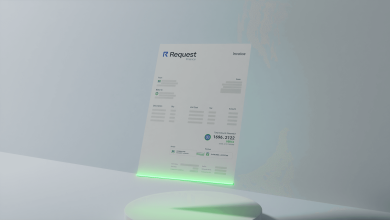How to Choose Student Loans

Choosing the right student loan can significantly impact you when repaying your college student debt.
If you don’t know what type of student loan to get, the best option is to go for one with various repayment alternatives, low-interest rates, and borrower protections. A direct federal loan meets these requirements and is a terrific place to begin.
But there’s a lot more to know before choosing a student loan. Let’s find out.
Know The Different Types Of Student Loans
Most students can choose between federal loans and private student loans from banks, credit unions, and other lenders for student loans. However, before looking into private loans, you should look into all of your federal loan choices, generally known as Direct loans.
The following are the different sorts of loans:
Direct Subsidized Loans. A government student loan for undergraduates. While you’re in school, you won’t be charged interest. Because it is a need-based program, your eligibility is determined by the information you provide on your FAFSA.
Direct Unsubsidized Loans. Any undergraduate or graduate student can apply for a federal loan (as long as they haven’t exceeded their lifetime borrowing limit). While you are at school, you will be charged interest. Pay the interest as you go to save money.
Private Student Loans. Bank or credit union loans are available. Before choosing a private student loan, you should compare prices to locate the best deal. Co-signing is usually required of students by a parent or other family member.
Direct PLUS Loans. These loans are federal loans for undergraduate students’ parents and graduate and professional students. These loans need you to pass a credit check.
You may have different options depending on where you reside and other circumstances. For example, residents in some states can get low-cost education loans. Other nonprofits and other organizations provide low-interest or no-interest student loans, usually within a city or state.
Keep in mind, however, that federal student loans come with student loan forgiveness and other cancellation programs.
Downsides To Federal Student Loans
If you don’t make any payments on your loan for 270 days, the government can garnish your whole tax refund and a portion of your salary or Social Security income.
Furthermore, you can only borrow a certain amount of money. For example, first-year students can borrow up to $5,500, while third-year students can borrow up to $7,500.
A Few Things To Keep In Mind When Comparing Student Loans
Examine the interest rate while comparing student loans. The interest rate is the most critical factor influencing your monthly payment and the total interest you’ll pay during the loan’s term.
The lower your interest rate, the lower your monthly payment, and the less interest you’ll pay. It’s also a good idea to compare different sorts of interest rates. For example, loans from private lenders are usually offered at a fixed or variable rate.
A fixed-rate loan has consistent payments, whereas a variable-rate loan has payments that fluctuate.
Determine How Much The Payments Could Change
Variable-rate student loans initially have lower rates than fixed-rate loans. Thus some borrowers prefer them.
Before choosing a variable-rate loan, make sure you understand how much your payments can change and whether you can afford the highest monthly amount. Then, choose the fixed-rate option if you prefer a consistent monthly payment.
Another important consideration is the repayment period. Shorter repayment lengths are associated with more significant monthly payments and lower interest rates. Conversely, lower monthly payments and higher interest rates are associated with longer repayment durations.
A long-term loan usually has a higher total interest rate than a short-term loan. In addition, different lenders provide different sorts of repayment choices.
Some private lenders demand you to make payments while still enrolled in school, while others allow you to postpone payments until you graduate.
Final Thoughts
It’s a huge decision to take out student loans to help pay for school. But it doesn’t have to be a terrifying experience that you’ll come to regret later!
Make sure that you make a more informed decision and know how to discover the best student loans for you if you plan and understand how student loans work. If you’re having issues deciphering the whole process, speak to a student loan expert
These experts can help you take the right course of action that you won’t regret later.



